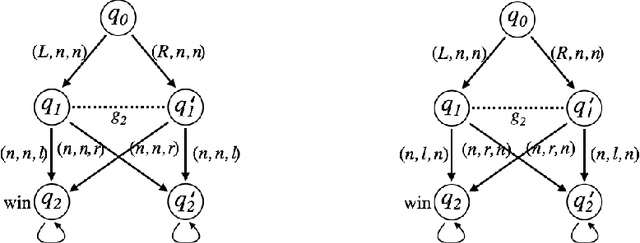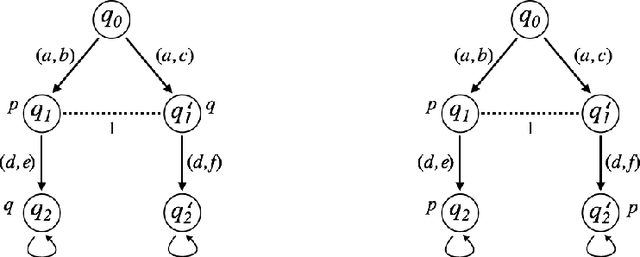Guifei Jiang
Model-theoretic Characterizations of Existential Rule Languages
Jan 23, 2020

Abstract:Existential rules, a.k.a. dependencies in databases, and Datalog+/- in knowledge representation and reasoning recently, are a family of important logical languages widely used in computer science and artificial intelligence. Towards a deep understanding of these languages in model theory, we establish model-theoretic characterizations for a number of existential rule languages such as (disjunctive) embedded dependencies, tuple-generating dependencies (TGDs), (frontier-)guarded TGDs and linear TGDs. All these characterizations hold for arbitrary structures, and most of them also work on the class of finite structures. As a natural application of these characterizations, complexity bounds for the rewritability of above languages are also identified.
Towards Universal Languages for Tractable Ontology Mediated Query Answering
Dec 13, 2019
Abstract:An ontology language for ontology mediated query answering (OMQA-language) is universal for a family of OMQA-languages if it is the most expressive one among this family. In this paper, we focus on three families of tractable OMQA-languages, including first-order rewritable languages and languages whose data complexity of the query answering is in AC0 or PTIME. On the negative side, we prove that there is, in general, no universal language for each of these families of languages. On the positive side, we propose a novel property, the locality, to approximate the first-order rewritability, and show that there exists a language of disjunctive embedded dependencies that is universal for the family of OMQA-languages with locality. All of these results apply to OMQA with query languages such as conjunctive queries, unions of conjunctive queries and acyclic conjunctive queries.
Knowledge Sharing in Coalitions
Nov 25, 2016

Abstract:The aim of this paper is to investigate the interplay between knowledge shared by a group of agents and its coalition ability. We investigate this relation in the standard context of imperfect information concurrent game. We assume that whenever a set of agents form a coalition to achieve a goal, they share their knowledge before acting. Based on this assumption, we propose a new semantics for alternating-time temporal logic with imperfect information and perfect recall. It turns out that this semantics is sufficient to preserve all the desirable properties of coalition ability in traditional coalitional logics. Meanwhile, we investigate how knowledge sharing within a group of agents contributes to its coalitional ability through the interplay of epistemic and coalition modalities. This work provides a partial answer to the question: which kind of group knowledge is required for a group to achieve their goals in the context of imperfect information.
 Add to Chrome
Add to Chrome Add to Firefox
Add to Firefox Add to Edge
Add to Edge